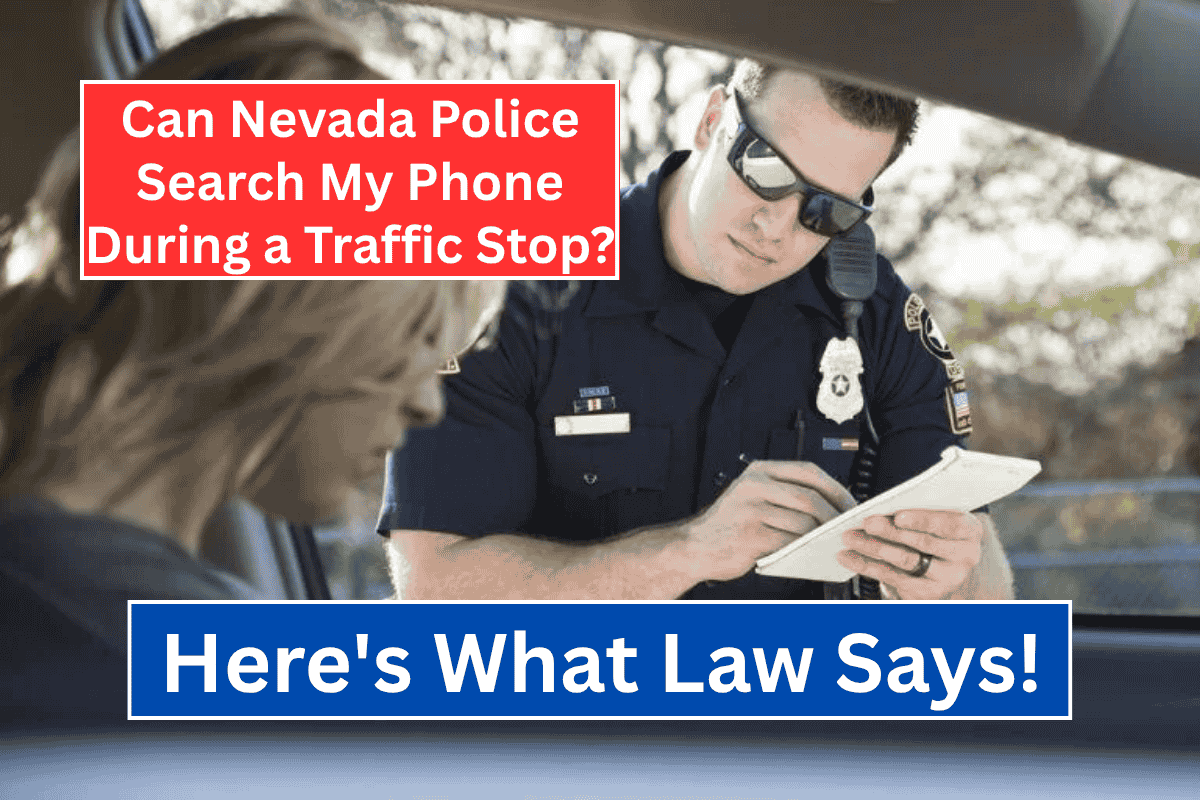When you’re pulled over or stopped by police in Nevada, it’s normal to feel worried. You might think they can search anything you have—a car, your phone, your bag. But actually, the law gives you important protections.
This guide explains what police can and can’t do during a traffic stop in Nevada, using clear language and real examples to help you understand your rights.
What Is the Fourth Amendment?
The Fourth Amendment of the U.S. Constitution protects people from “unreasonable searches and seizures.” That means the police usually can’t search you, your car, your home, or your bags unless they have a good reason—and in most cases, a proper warrant. Nevada’s constitution gives you the same protection.
When Is a Warrant Needed?
To search something like your home, car, or phone, police generally need a warrant. This is a legal document from a judge confirming there is probable cause—solid reason—to believe a crime happened and evidence will be found in the place they want to search.
If officers go beyond what the warrant allows, the evidence they find could be rejected in court, thanks to the “exclusionary rule.”
Exceptions to the Warrant Rule
There are key exceptions when police can search without a warrant:
Consent Searches
You can say yes or no to a request to search. If you agree, the police can go ahead—but you can also limit what they look at. And anytime, you can take back your permission.
Searches Incident to Arrest
If you’re lawfully arrested, police can search you and the area near you for weapons or to prevent evidence being destroyed. But for your phone, there are stricter rules. The U.S. Supreme Court said in Riley v. California that police generally need a warrant to look inside it.
Plain View Doctrine
If police are lawfully where they are and spot something illegal in plain view—say, drugs on your passenger seat—they can seize it without a warrant.
Vehicle Searches
During a traffic stop, police can’t search your car without consent or probable cause that it contains evidence of a crime. They can ask you questions, ask for your license/registration, and have you step out of the vehicle. They can also pat you down if they think you might be armed.
Exigent Circumstances
In emergency situations, such as chasing a suspect or preventing evidence destruction, police can search without a warrant. But courts check closely to make sure the emergency was real, not created by the police.
Stop and Frisk
If police reasonably suspect criminal activity, they can briefly detain you and pat you down for weapons. In Nevada, you must tell them your name if detained (based on Hiibel v. Sixth Judicial District Court).
What You Should Do During a Stop
Stay calm and respectful. If they ask to search, ask if they have a warrant. You can say, “I do not consent to a search.” Don’t argue or resist. Instead, note details later—like badge numbers, what was searched, and what was said.
You must give your name, but otherwise, you can refuse to answer questions. If your rights were violated, contact a lawyer and they can file a motion to suppress illegal evidence.
Digital Privacy Gets Extra Protection
The courts treat your phone and digital data differently. Police need a warrant to look inside your phone, even after they arrest you (Riley and Carpenter cases). In Nevada, police can’t search your phone unless they get a new warrant or another real emergency exists (Smith v. State, 2024).
Knowing your Fourth Amendment rights is key in Nevada. Police generally need a warrant to search your property, and there are specific exceptions like consent or emergencies. You can refuse a search if there’s no warrant or probable cause. Even if something seems unfair, don’t resist.
Keep track of what happened and talk to a lawyer. If your rights were ignored, the evidence can be thrown out in court, helping protect your future. Stand strong—your rights matter.












